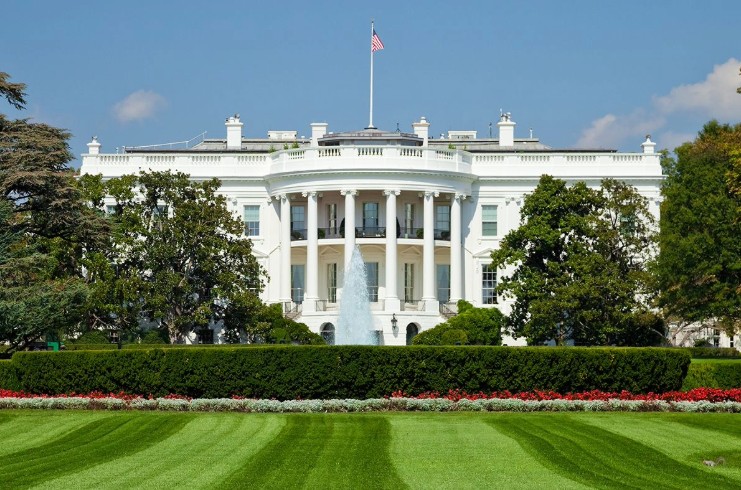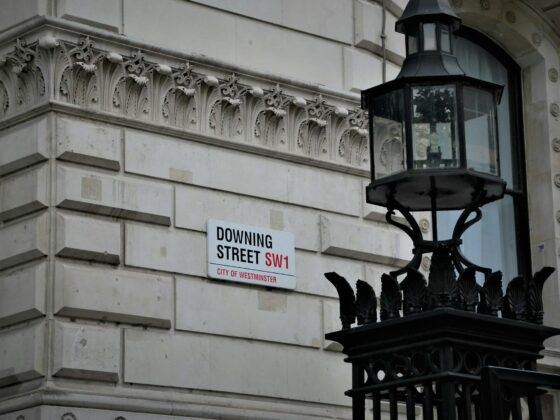
April 30 marked the “100 days” milestone for President Donald Trump’s second term. So far, nearly every one of those days has brought changes promised on the campaign trail that affect tax and trade policy, from redrawing maps to bringing back plastic straws and everything in between. Many of these initiatives affect the economy and workforce relations, and consequently, most aspects of the lodging industry. AHLA’s job is to keep our members informed about current and anticipated changes and public policy implications and to inform policymakers about how decisions made in Washington are playing out at properties and in communities across the country.
In addition to communicating weekly with our members through Hotel Lobby, we will often distribute critical information in real time through our “All Member Note.” If you’re an AHLA member, please sign up at ahla.com to receive these important alerts.
To inform our advocacy strategy, we are also monitoring economic data from a variety of sources and conducting critical research on impacts to the industry. As an AHLA member, you’ve probably seen a survey or two from us in just the last few weeks. This information is critically important to our mission of informing policymakers and advocating on the industry’s behalf.
These are some of the most important changes we have seen affecting the industry in these first 100 days:
Tax policy
Throughout the campaign cycle, President Trump championed the extension of his signature tax plan passed in 2017. For hoteliers, this law provided significant tax cuts to small businesses, job creators, and real estate investors. It also provided a boost for capital investments and incentives for family businesses. Many of those policies are set to expire at the end of 2025, which would result in a massive tax hike for America’s hoteliers.
Congressional leaders and the White House have made extending the 2017 tax law a top priority for the first part of this year, and AHLA has been actively lobbying for its passage. In his March 6 address to Congress, President Trump called for making the Tax Cuts & Jobs Act permanent. This effort is a cornerstone of the congressional agenda. We are optimistic that Congress will pass the tax relief measure in the coming weeks and provide critical tax certainty for America’s hoteliers.
Cabinet appointees
Cabinet appointments can have considerable impact on our industry by setting regulatory policy that does not require congressional approval but can affect everything: business practices, reporting requirements, workforce relations, and costs and fees. AHLA has applauded the confirmations of numerous Cabinet officials, including Secretaries Bessent at Treasury, Lutnick at Commerce, Chavez-DeRemer at Labor, Duffy at Transportation, and Administrator Loeffler at Small Business.
Each of these leaders has a proven track record as a champion of small businesses, and all have shared their visions for promoting growth and strong workforce relations. We look forward to working with all of them to advance the priorities of our industry.
Tariffs
President Trump’s economic vision has long included an aggressive tariff policy aimed at leveling certain trade relationships and motivating actions from countries to benefit the United States. Among the earliest actions of his second term, President Trump initiated tariffs against Canada, Mexico, and China. He announced reciprocal tariffs against many countries, effective April 2.
We do expect an initial impact on certain products and services, including soft goods, construction materials, and supply chains from targeted countries. Industry experts have told us that the effects will be felt more in some regions of the country and across some industry segments. We continue to discuss the data shared by our members with key policymakers and will continue to monitor trade policy as it develops.
Federal Spending and Travel. On Feb. 26, the president issued an executive order limiting “non-essential” government travel, creating a new process for travel approvals, and freezing federal credit card expenditures for federal employees.
These changes have affected travel from individual meetings and appointments to larger conferences and annual events across most federal agencies and regions of the country. While to some extent it is normal for a new administration to temporarily halt travel pending review, we are monitoring the impacts of these changes and their long-term implications.
International Inbound Travel
International travel is a significant economic driver for the American economy and for hotels in particular. Over the past few months, we have seen early indicators of drops in international inbound visitors from America’s top travel partners, including Canada, Mexico, Europe, and South America. These losses could have lasting impacts on our industry, which continues to recover from pandemic-related economic and workforce shortfalls.
Reports have circulated of a potential travel ban for dozens of countries that do not have certain established security protocols. While many of the countries on the purported list do not drive significant travel to the United States, any limits on travel could raise aggregate economic concerns for our industry. We are monitoring these developments and will keep members informed of any changes.
AHLA members will have the opportunity to discuss public policies affecting our industry directly with members of Congress during our annual Hotels on the Hill event, May 13-14, in Washington, D.C. This conference is extremely valuable not only to hoteliers as they deliver their message, but also to the lawmakers who look forward to these meetings to learn about the main-street implications of policies developed in Washington. Effective government depends on constant feedback. AHLA is delivering that feedback every day, but it’s always most powerful from the constituents themselves.
As always, we are grateful for our members’ input and welcome your thoughts and insights. Please be sure to sign up for our materials and reach out to govaffairs@ahla.com with your thoughts and ideas.









